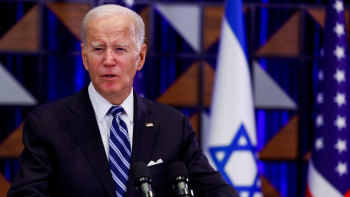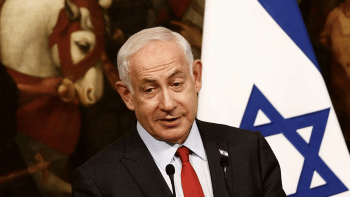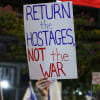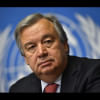Israel's allies must see the moral imperative of a ceasefire

This Tuesday, we witnessed the highest 24-hour death toll since Israel began its bombardment of Gaza after the October 7 attack on its soil by Hamas. Reportedly, more than 700 Palestinians were killed in overnight Israeli airstrikes, bringing the total death toll in Gaza to 5,791. The numbers will rise further as air raids show little sign of abating, deepening a humanitarian crisis in the besieged enclave where aid agencies are still struggling to reach civilians.
Against this backdrop, the Unicef has called for an immediate ceasefire and unimpeded humanitarian access to Gaza, decrying the staggering number of child casualties as "a growing stain" on humanity's conscience. About 2,360 children have been killed in less than three weeks, and a further 5,364 children have been injured. Major media outlets have also reported how Gaza's hospitals are ceasing to function without water and fuel for generators. This collective punishment of Palestinians and the blocking of crucial aid into Gaza have been rightly described by Human Rights Watch as a war crime.
It is clear to any reasonable observer that there is a dire need for an immediate ceasefire. Which is why it is baffling to see certain world leaders continue to veto and resist anti-war resolutions at the UN Security Council. Last week, the US vetoed a resolution that would have called for a pause in fighting, and an earlier Russian-drafted resolution was also rejected. The blind support for Israel from its allies is only emboldening the state, which has now declared it will no longer grant visas to UN representatives to "teach them a lesson" after UN Secretary-General Antonio Guterres spoke of the "clear violations of international humanitarian law" in Gaza.
Given that 80 percent of Gaza's inhabitants relied on international aid before the war, Israel's latest stance on the UN is deeply concerning. UN agencies and other humanitarian organisations must be allowed to operate within Gaza to take crucial aid to its devastated population. It is not only morally reprehensible for Israel's allies to turn their backs on them – if Israel is allowed to continue to commit war crimes with impunity, what precedent does it set for other countries violating international law? What does it say about the state of the international justice system? World leaders, especially Israel's allies, must remember that we are all watching. The people need to know that the rules apply to all, not just those who do not have the power to abuse them.


 For all latest news, follow The Daily Star's Google News channel.
For all latest news, follow The Daily Star's Google News channel. 









Comments